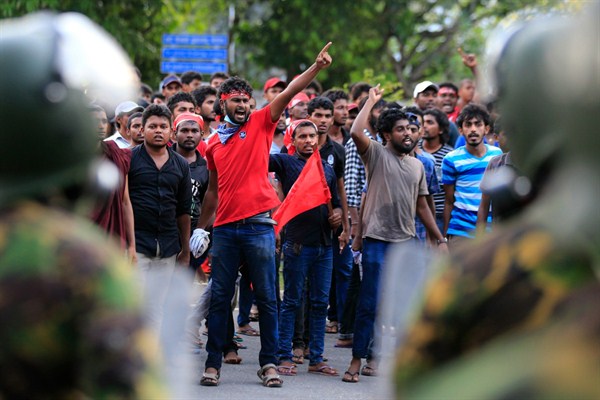Editor’s Note: This article is part of an ongoing WPR series about education policy in various countries around the world.
In Sri Lanka, controversy surrounding a private medical university has led to months of demonstrations and fierce debate on the merits of private education institutions in general. Last month, in Colombo, police used tear gas to disperse thousands of protesters who, according to the Associated Press, ignored an official protest ban to make their case that the medical university, the South Asian Institute of Technology and Medicine, should be shut down. In an email interview, Nisha Arunatilake, a fellow with the Institute of Policy Studies of Sri Lanka, describes challenges facing Sri Lanka’s higher education sector and why the issue of privatization is so fraught.
WPR: What is the overall quality of higher education institutions in Sri Lanka, and what is the government doing to improve them?

